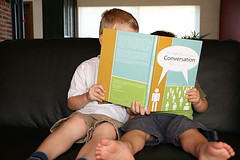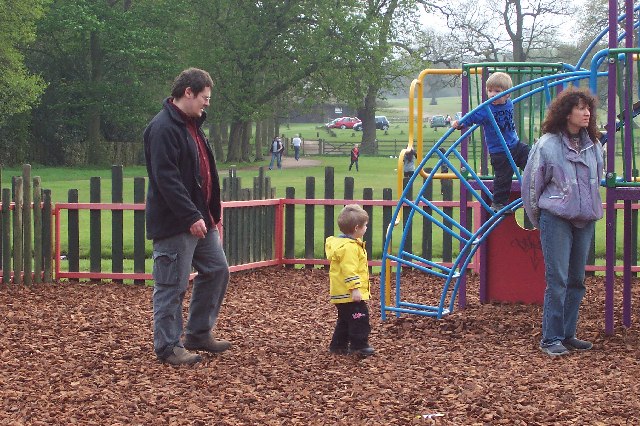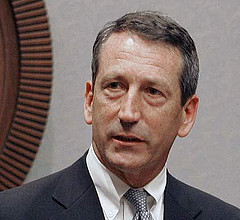When there is an addict or alcoholic in the home all sense of peace is lost. Drugs, alcohol, and the emotional turmoil that comes with substance abuse take center stage. Family members either act as if nothing is happening or fly into irrational rages while desperately searching for something to control. By the time the drug abuser is discovered, in some ways it is already too late. Without intervention the problem will probably get worse. It is rare that an addict or alcoholic wakes up one day and suddenly decides to mend his ways. He may make promises along these lines but that is usually to avoid potential consequences, not because of a sudden change in heart. Loved ones are left confused and scared, having little awareness of where to turn. Parents of addicts need tools after their son or daughter enters recovery. Abstinence does not solve all the problems created by drug abuse. With the right help parents are able to become a part of the solution while healing emotionally.
parenting
How To Cope With Emotional Turmoil With An Addict Or Alcoholic
Youth at Risk In Today’s World
It is not uncommon to hear stories about “at risk youth.” The term is often used but at times misunderstood. There are so many circumstances that put young people in potentially dangerous situations that in some ways young people are “at risk” all the time. Normally, parents compare what teenagers experience today through the lens of their own life but today’s world is a very different place. Every generation has its version of “these young people just don’t get it” but in reality things have changed significantly in the past three decades.
Guidance For Parents In Substance Abuse Recovery
The second step in Enthusiastic Sobriety is: We found it necessary to stick with winners in order to grow. For young people in recovery, the reason for this statement to be an actual step is obvious. Young addicts and alcoholics are very peer driven. If they aren’t around other sober young people they are likely to use again. What isn’t as clear is the degree to which adults are affected by the opinions of other grown-ups. Some of the worst advice parents get on how to deal with a drug abusing child comes from other well intentioned parents.
Good Intention Is Not Necessarily Good Advice
Most people are very willing to give advice to parents who are struggling with a troubled child. This is especially true if the kid in question has a drug or alcohol problem. It seems that everyone has either experienced substance abuse issues or at least knows someone who has. These experiences can be helpful but are often a hindrance. When a family is in the midst of a crisis centered on drug abuse what they need most is sound guidance. Where counsel comes from is important. Emotionally driven anecdotal tips do little good. For a plan of action a parent should consult an expert. The combination of professional counsel and empathetic support from parents who have been in a similar situation lay the foundation for a solid program of recovery.
You Are Not Alone
Having a child struggling with drug and alcohol problems does not make a parent a failure. Asking for help can be extremely difficult. The fear of judgment or the idea that somehow you have caused the problem leads to despair and isolation. There are people who understand exactly how it feels to be in this situation. Those who have found recovery have a responsibility to share what they have done to get better. Parents in need of help don’t know where to turn. There is an endless supply of irrational recommendations available. Most people in search of help have been misguided at some point. Not everyone can be expected to understand what it is like to deal with a substance abuse issue. “Sticking with winners” is a powerful tool parents can use to find help and to not feel so crazy.
Respond To Family Crisis: How To Avoid Drama At Home
When does a situation at home become a true family crisis? Is there a distinction between a disagreement and a fundamental problem? There are some circumstances that may be simple differences of opinion that escalate into full-blown catastrophes. Some situations that need attention get swept under the rug that lead to deeper troubles. A challenge within any family is learning how to curtail drama in order to handle conditions as they arise.
Where To Start?
One of the primary causes of family crisis is a lack of cohesion within the unit. Regardless of the make-up of a family, it is important that every individual involved be aware of the wants and needs of other members. Without clarity in this area everyone is left guessing, which only increases insecurity. This emotional instability can fracture relationships and cause long-term damage to trust. For example, when parents aren’t on the same page in terms of what is acceptable behavior, children will take advantage of this split in opinion. This isn’t because kids are naturally manipulative. It is due to the fact that human beings draw security from consistency. There are several ways to demonstrate love. One important method is clear and steady communication of values. When combined with flexibility this creates an environment of assurance and sanctuary.
Now What?
There are no relationships more important than those most immediate. One of the keys to maintaing peace and cohesion at home is having a collective awareness. Everyone may not agree on every issue but if conversations are open and honest it will be possible to resolve most problems. Begin by following a few simple steps:
- Be clear about which issues are truly important to you
- Don’t leave others guessing about how you feel
- Be willing to admit when your are wrong
- Avoid the temptation to jump to conclusions

Being able to face challenges is difficult when those you love are involved. Because of this fact it is imperative to try to think before reacting. When this is accomplished the chances for a situation to escalate are diminished. As a result, relationships grow closer and harmony is achieved.
Do Your Children Communicate Clearly? How To Help Positive Communication
What is one of the most important skills human beings develop? It is the ability to communicate. People first learn to communicate at home. When a parent’s priorities are centered on building a loving relationship with his child, he works to set up an environment conducive to everyone feeling safe to express themselves openly and honestly.
Often the adults in a household have the freedom to scream, holler, rant, and rave; but when their child so much as raises her voice, she is punished.
Consider the mixed message sent to the child. An adult has the right to express his or her emotions in any way seen fit; but a child is worth less than an adult, therefore, she must learn to behave herself and be quiet.
The parent rationalizes this with the idea he is teaching his child respect or discipline. The parent is probably living out of his own negative family scripting.
He is teaching his child a very dangerous coping mechanism, how to misplace her emotions. The child is upset or angry, but is told she cannot express her feelings. No matter what the child was upset about initially, her anger will be directed at her parents. This misplaced anger will be manifested in some way, shape, or form. No human being is able to bottle up feelings and maintain any semblance of mental or emotional well-being. These emotions come out at some point.
• A key to ending negative scripting patterns within a family is to create a safe and loving environment.
• When the focus of parenting is on the relationship it is easier to avoid unrealistic expectations.
- A child’s feelings are as real and powerful as an adult’s; they should not be discounted.

Three Tips To Encourage Positive Communication With Children
- Remember children’s feelings are as powerful as adults but kids lack the same coping skills
- Children who are free to express emotions at home are less likely to act out away from home, provide them with a safe place to vent their feelings
- Support children, don’t try to change the way they feel
Emotions aren’t right or wrong. When children have the freedom to talk about their feelings they will, most likely, talk. Adults should remain aware to not judge a child’s emotions, the child will process the feelings if given the chance.
Photo Credit: Kris Hoet via: Flickr
What Other Parents And Parenting Experts Can’t Tell You About Your Child
An easy trap for parents to fall into is the unrealistic expectation of perfection. Parents are conditioned to believe they should be equipped to handle any problem their children might have. Parents become convinced that there shouldn’t be a question they are unable to answer. Many read the testimonials of other parents, or of parenting experts, and immediately feel inadequate if their children aren’t living up to what are considered normal developmental standards.
In reality, parenting is subjective. Despite numerous sources from which ways of thinking or philosophies are gleaned, how an individual chooses to parent is primarily dictated by the personalities of the children being parented.
Rather than trying to fit perfectly within a particular parenting philosophy,one could make an effort to learn from as many resources as possible. That doesn’t mean change on a whim; it means to be in a position to respond to children’s ever-changing needs.
Paying too much attention to “normal” developmental stages puts an unnecessary amount of pressure on the parent and the child. It is important to keep in mind that children want to be close to their parents. They have a sincere desire to please their care-givers.
Sometimes this desire to please becomes a struggle for independence because children want to prove they are able to take care of themselves. If a parent is able to keep this in mind there will be less of a need to control the child’s behavior to fit a chosen parenting philosophy.

Far too often what gets lost in the minutiae of parenting is the relationship between the parent and the child. There are many ways to gauge whether or not this is happening. Some questions include:
• Does a lot of energy get spent trying to make sure the child fits the “normal” developmental standards?
• Is there an attempt to strictly adhere to any one parenting philosophy?
• Are expectations based on the personality of the child or on what others say should be expected of the child?
The parent-child relationship can feel very complicated at times. One way to facilitate a harmonious and productive relationship is for the parent to deal with his own emotions first. When able to do this, the urge to control the behavior of someone else is greatly reduced. This is easier said than done in a lot of cases, but it is certainly an ideal worth shooting for.
Photo: © Copyright Adrian Bailey and
licensed for reuse under this Creative Commons Licence.
Learn From TIger-Power Equals Responsibility

Certainly there have been plenty of pundits weighing in on the indiscretions of Tiger Woods. Now, it’s my turn. It seems people are shocked whenever someone in the public eye is found to be less than perfect, particularly when the person in question is viewed as being super-human. Time and time again those who are lifted to the pedestal of greatness come crashing down. Hard.
This year alone Tiger Woods, the Georgia House Speaker Glenn Richardson, South Carolina Governor Mark Sanford, and former quarterback Steve McNair have faced unimaginable consequences for extra-marital affairs. All of these men have children: Tiger Woods has two children, Glenn Richardson has three children, Mark Sanford has four children, and Steve McNair is survived by four children.

There will be plenty of people who defend the actions of these men with statements illustrating the “unreasonable” expectations the public places on those in prominent positions. I disagree with this notion. I believe it is an honor to excel at something to the degree that others wish to reach the level of the example you set. I write and speak about relationships. I spend my time coaching and counseling people on the importance of making deep and meaningful connections with others. I believe that there is nothing more sacred than the trust built between people based on shared convictions, definitions of happiness, and love. In my experience there are few things more destructive than the breach of this trust.
 Human beings are fallible. “Let he who has not sinned cast the first stone” is a quote that speaks volumes. So is: “power = responsibility.” For anyone hoping to someday be elevated to a position of great authority or influence, remember people rely on you. They don’t necessarily depend on you being perfect but they certainly should expect honesty, humility, and responsibility. Oh, by the way, be honest before you are caught.
Human beings are fallible. “Let he who has not sinned cast the first stone” is a quote that speaks volumes. So is: “power = responsibility.” For anyone hoping to someday be elevated to a position of great authority or influence, remember people rely on you. They don’t necessarily depend on you being perfect but they certainly should expect honesty, humility, and responsibility. Oh, by the way, be honest before you are caught.
Steve McNair was murdered by his mistress. He left behind a wife and four kids. Glenn Richardson was so petrified by potential backlash that he attempted to take his own life. He is the father of three children. There is no viable excuse for infidelity. It is time for people to realize that in any relationship, particularly in relationships with your family, there are responsibilities to those with whom you are involved. No one is bullet proof.
Maybe Tiger Woods will work out his relationship with his wife. Perhaps Glenn Richardson will seek help. Mark Sanford may find his way. Steve McNair is dead. The reality these men share is that their children are forever affected by their actions. These situations have permanently altered how they as men and as fathers will be viewed. Not by us, the public, but by their families. They are who matter.
 Take this opportunity to express to anyone in your life how much you love them. Let them know that despite your imperfections they can trust you. Convey with clarity and conviction that you will attempt to better yourself when you become aware of your shortcomings.
Take this opportunity to express to anyone in your life how much you love them. Let them know that despite your imperfections they can trust you. Convey with clarity and conviction that you will attempt to better yourself when you become aware of your shortcomings.
Secrets Breed Sickness

Secret keeping always breeds sickness. No matter what lengths a person may go to in order to protect himself or someone else, if he is keeping secrets, he will create harm. Often people make the decision to keep secrets because of a fear of embarrassment. No one wants his own reputation, or his family’s reputation, to be tarnished.
This fear is understandable, because embarrassment can be painful. However, when we allow ourselves to operate from a foundation that encourages pathological dishonesty, we shouldn’t be surprised when someone spends his or her life lying or cheating. I’m not saying it is always a parent’s fault when a child grows up and becomes a dishonest person, but when someone grows up in an environment that allows dishonesty to flourish, he may have a difficult time breaking that pattern.
Family relationships are the most critical aspect of anyone’s early psychological and emotional development. Patterns of behavior are established at a very early age. These patterns are rooted in the perceptions formed from our relationships with our families of origin. If we are unwilling to investigate these parts of our lives, we will severely limit our ability to break the patterns of dysfunction with which we have become accustomed. This can have a life-long effect on our ability to form healthy relationships.
Everyone doesn’t come from a dysfunctional family. In fact, there are many people who choose to abuse the term in order to justify negative or antisocial behavior. For those of you who do come from dysfunctional family backgrounds, it is imperative you realize your own power to break the cycle of dysfunction and let it go forever. It all begins with a willingness to change.
· A dysfunctional family is one in which abuse, neglect, closed- mindedness, and absence of affection are characteristics which create the atmosphere at home.
· Relationships built on a foundation of honesty, understanding, and love will flourish.
· The cycle of dysfunction is broken when an individual recognizes he possesses the power to let go of his negative patterns.
Do you continue to excuse negative behavior today because of family situations from the past? Do you want to let go of the pattern of victimization? Start by making the decision to change now.
On the Topic of Parenting….
An easy trap for parents to fall into is the unrealistic expectation of perfection. We are conditioned to believe we should be equipped to handle any problems our children might have. We convince ourselves there shouldn’t be a question we are unable to answer. We read the testimonials of other parents or of parenting experts and immediately feel inadequate if our children aren’t living up to those written standards.

In reality, parenting is subjective. Despite numerous sources from which we can glean ways of thinking or philosophies, how we parent is primarily dictated by the personalities of our children and ourselves.
Rather than trying to fit perfectly within a particular parenting philosophy, make an effort to learn from as many resources as possible. I don’t mean change on a whim; I mean put yourself in a position to respond to your children’s ever-changing needs.
Paying too much attention to “normal” developmental stages puts an unnecessary amount of pressure on you and your children. Always keep in mind that your children want to be close to you. They want to please you.
Sometimes this desire to please becomes a struggle for independence because children want to prove they are able to take care of themselves. If I, as a parent, keep this in mind then I will feel less of a need to control my daughter’s behavior to fit my chosen parenting philosophy.
Far too often what gets lost in the minutiae of parenting is the relationship between the parents and the child. There are many ways to gauge whether or not this is happening in your family. Here are some questions you can ask yourself:
• Do I spend a lot of energy trying to make sure my child fits the “normal” developmental standards?
• Do I try to strictly adhere to any one parenting philosophy?
• Am I obsessed with the opinion of other people in regard to my child?
• Do I try to limit things, such as video games and television?
• Are my expectations based on the personality of my child or on what others say should be expected of my child?
Focus on the relationship first. The security created by this connection is what motivates people. The parent-child relationship can feel very complicated at times. One way to facilitate a harmonious and productive relationship is to deal with your emotions first. When you are able to do this, the urge to control the behavior of someone else is greatly reduced. I realize this is easier said than done in a lot of cases, but it is certainly an ideal we can all shoot for.
Have a wonderful holiday and enjoy your family!
The Moment is What Matters
 Yesterday was my daughter’s tenth birthday. It was a wonderful day and a true celebration of the wonderful relationships our family has. Ten years is a long time. Many things change and evolve. If you remember to pay attention, your gratitude grows exponentially.
Yesterday was my daughter’s tenth birthday. It was a wonderful day and a true celebration of the wonderful relationships our family has. Ten years is a long time. Many things change and evolve. If you remember to pay attention, your gratitude grows exponentially.
I remember throughout my wife’s pregnancy the wise words many parents shared with me about the importance of staying present mentally and emotionally. The advice they shared was invaluable and has reminded me how quickly time passes if you don’t pay attention. Blink and it’s gone, is a statement we have all heard. Because of this awareness, I decided long ago to be conscious of putting my family first.
Nothing is more important than our connections. We are defined by our relationships. Our relationships reflect our internal condition. The deeper we connect with people the fuller our lives become. Particularly our relationships with our partners and children.
Your kids don’t care about your professional accomplishments and your partner wants to connect with you. Two things your children and your partner have in common is their desire to be close to you and their need to be involved in your life. It is too easy to justify isolation with the word “responsibility.” Work, grow, and accomplish. These are important and admirable things to do. First and foremost pay attention to those who rely on the connection they have with you. Be present and don’t miss any moments. This is where true success, happiness, and accomplishment lives.